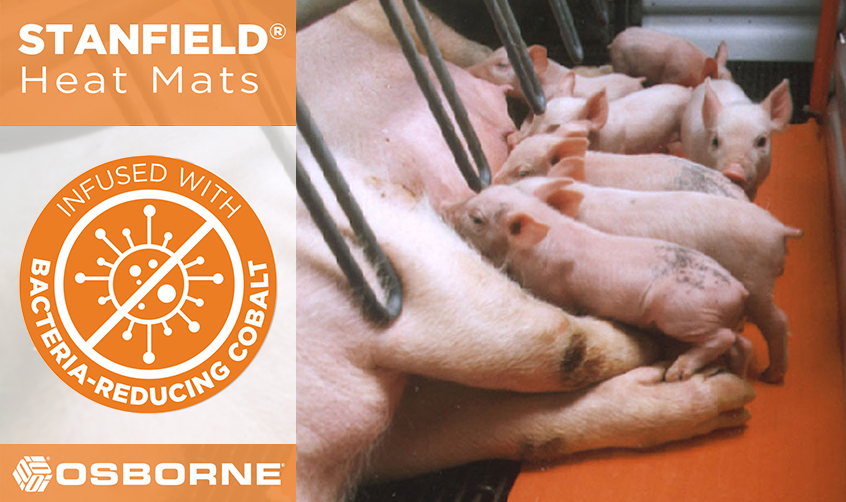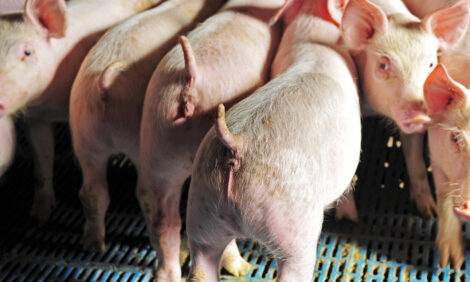



Meat Without Drugs Campaign Launched
US – A majority of Americans want meat raised without antibiotics to be sold in their local supermarket, according to a new national poll conducted by Consumer Reports.The poll is part of a report, “Meat On Drugs: The Overuse of Antibiotics in Food Animals and What Supermarkets and Consumers Can Do to Stop It“.
Consumers Union, the public policy and advocacy arm of Consumer Reports, has simultaneously launched a new marketplace campaign, urging supermarkets to sell only meat raised without antibiotics, starting with Trader Joe’s, one of the leading national chains best poised to make this commitment.
It also sent a letter to the U.S. Department of Agriculture (USDA) asking it to tighten labeling standards for meat raised without antibiotics.
Consumer Reports sent “secret shoppers“ out to stores in the 13 largest supermarket chains around the country to see whether and to what degree those stores offer meat and poultry raised without antibiotics. We also conducted additional label research.
The shoppers found wide differences among the stores from Whole Foods, where all meat and poultry sold is raised without antibiotics, to Sam’s Club, Food 4 Less, Food Lion, and Save-A-Lot, where they could not locate such products at the stores visited.
“We are asking supermarkets to step up to the challenge and tell their suppliers to procure only meat and poultry that has been raised without antibiotics,“ said Jean Halloran, Director of Food Policy Initiatives for Consumers Union.
“Antibiotics are losing their potency in people, leading to a major national health crisis, and we need to drastically reduce their use in food animals. We are calling on Trader Joe’s to be a leader and make this change now.“
Key Findings
Eighty-six per cent of consumers polled indicated that meat raised without antibiotics should be available in their local supermarket.
More than 60 per cent of respondents stated that they would be willing to pay at least five cents a pound more for meat raised without antibiotics. More than a third (37 per cent) would pay a dollar or more extra per pound.
The majority of respondents (72 per cent) were extremely or very concerned about the overuse of antibiotics in animal feed, including the potential to create “superbugs“ that are immune or resistant to antibiotics. More than 60 per cent were just as concerned with the overuse of antibiotics in animal feed allowing them to be raised in unsanitary and crowded conditions for livestock, human consumption of antibiotic residue, and environmental effects due to agricultural runoff containing antibiotics.
Consumer Reports’ shoppers visited 136 supermarkets in 23 states, including at least five stores belonging to each of the 13 largest (by sales) supermarket chains in the nation, and collected data on more than 1,100 different “no antibiotics“ meat and poultry items. The shoppers found wide geographic availability, and big differences among chains and stores in availability of meat and poultry raised without antibiotics. Whole Foods guarantees that all meat and poultry sold in its stores is never treated with antibiotics. Shoppers also found wide selections of meat and poultry raised without antibiotics at Giant, Hannaford, Shaw’s and Stop & Shop. Shoppers at Sam’s Club, Food 4 Less, Food Lion, and Save-A-Lot stores, however, could not find any meat or poultry indicating they were raised without antibiotics.
Meat and poultry raised without antibiotics does not have to be expensive. While prices of “no antibiotics administered“ meat and poultry varied considerably depending on store, type of meat (beef, pork, chicken, turkey) and cut, in some cases our shoppers found prices that were actually lower than the national average for all of that type of meat. Chicken raised without antibiotics was available for as little as $1.29 a pound at several stores including Trader Joe’s, Publix and Jewel-Osco.
Label Findings
Consumer Reports’ shoppers found more than 20 different labels related to antibiotic use, such as “never ever given antibiotics“ and “humanely raised on family farms without antibiotics.“ Consumer Reports analyzed the labels, conducted additional label research and concluded that consumers can always rely on the “organic“ label, which by definition means no antibiotics can ever be used. In addition, consumers can generally rely on labels that imply that no antibiotics were used especially if they are also “USDA Process Verified“ (this means USDA has checked up on the producer).
However, Consumer Reports identified a few labels that consumers should not rely upon as indicators that a product has truly had no antibiotics throughout the growing process. Labels such as “antibiotic-free,“ “no antibiotic residues,“ and “no antibiotic growth promotants“ are not approved by USDA and should not appear in the marketplace. They could mislead consumers. Also misleading but USDA-approved is “natural“ which can be confusing since it does not ensure that antibiotics were not used.
“Consumers who want to buy meat raised without antibiotics need a system they can rely on to feel secure that the labels on those products are meaningful and accurate. Our shoppers and research found several instances of labels that could mislead consumers to believe they were buying meat from animals that were not given antibiotics, when in fact that is not necessarily the case,“ said Dr. Urvashi Rangan, Director, Consumer Safety and Sustainability at Consumer Reports. “Consumers would benefit from one standard, meaningful, USDA-verified label that is consistent on all meat and poultry products from animals raised without antibiotics.“
In letter dated June 18, 2012, Consumer Reports called on the USDA to establish such a standard label and publish the names of the companies who are approved to use it, and for what products. It is asking that USDA also take action against labels that fall short of its definition.
The campaign, “Meat Without Drugs,“ includes a companion website, www.MeatWithoutDrugs.org, and features a new video in partnership with www.FixFood.org, a social media project of Food, Inc. Director Robert Kenner, narrated by actor Bill Paxton, explaining the declining effectiveness of antibiotics.
Some 80 per cent of all antibiotics sold in the United States are used not on people, but on factory farm animals, to make them grow faster and to prevent disease in crowded and unsanitary conditions. This is creating “superbugs“ on farms to which humans are being exposed and causing life-saving drugs to become less effective.
Consumers Union believes that to preserve antibiotics for treatment of disease in people, use on animals must be drastically reduced or eliminated, and it has long urged the U.S. Food and Drug Administration (FDA) and Congress to ban the use of antibiotics in animal feed.








